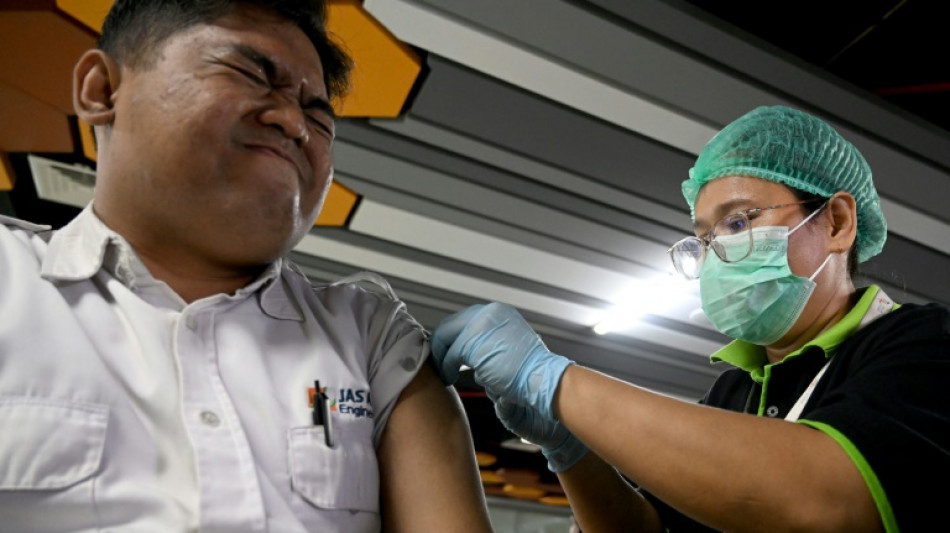
World leaders given treaty jolt on Covid anniversary

Wavering world leaders were told Tuesday to speed up efforts to agree a global treaty on avoiding a new pandemic catastrophe -- four years to the day since Covid-19 was declared an international emergency.
Countries have spent more than two years working out an accord on making sure countries are better prepared to deal with, or head off, the next pandemic.
The 194 World Health Organization member states wanted a treaty finalised by May this year when they started negotiations in December 2021 -- when the Covid-19 death toll was in millions and health systems had been crippled.
But the momentum has sagged, time is running out and countries are still at loggerheads.
The WHO executive board heard last week that European countries want more money invested in pandemic prevention, while Africa wants the knowledge and financing to make it work, including greater access to vaccines and treatments.
The Independent Panel for Pandemic Preparedness and Response, headed by former New Zealand prime minister Helen Clark and Liberian ex-president Ellen Johnson Sirleaf, recommended in May 2021 creating a new pandemic treaty.
Clark, Sirleaf and a host of other former heads of state released a letter Tuesday calling for greater action.
"There are worrying signs of stalemate on several issues which go to the heart of a transformative and equitable international system for pandemic preparedness and response," the signatories said.
"A new pandemic threat is inevitable. A new pandemic is not -- if we act now," they warned.
With only two fortnight-long sessions of talks planned before the deadline, the signatories urged world leaders to seal "an effective, legally-binding pandemic accord".
- 'Worrying signs of stalemate' -
The new treaty must guarantee that all countries "have the capacity to detect, alert, and contain pandemic threats, and the tools and means required to protect people's health and economic and social well-being", they said.
The original plan was for the agreement to be sealed at the 2024 World Health Assembly of member states, the WHO's decision-making body, which convenes from May 27 to June 1.
Besides regional wrangling, WHO chief Tedros Adhanom Ghebreyesus said last week that momentum had been slowed by entrenched positions and "a torrent of fake news, lies, and conspiracy theories".
The letter signatories said the accord must be balanced, with all regions having guaranteed rapid access to pandemic-fighting tools, rather than charity filling the gaps, or private companies calling the shots.
"Every region must have the capacities to research, develop, manufacture, and distribute life-saving tools like vaccines, tests, and treatments," they said.
"Second, the accord must commit to a pathway to sustained financing for pandemic preparedness and response," they added.
Finally, the agreement must ensure countries are held to account for their commitments.
"Without such assurance, a new pathogen simply has license to spread," they said, recommending an independent monitoring system along the lines of other existing treaties.
- Grim anniversary -
Signatories included former UN chief Ban Ki-moon, former WHO chief Gro Harlem Brundtland, and former UN aid chief Mark Lowcock.
Former presidents among the signatories were Ernesto Zedillo of Mexico, Mary Robinson of Ireland, Laura Chinchilla Miranda of Costa Rica and Kolinda Grabar-Kitarovic of Croatia.
Former British foreign minister David Miliband and former Argentinian foreign minister Susana Malcorra also signed the letter.
The call came on the fourth anniversary of the WHO declaring the worsening Covid-19 situation a public health emergency of international concern.
The January 30, 2020 declaration came when, outside China, there were fewer than 100 cases and no deaths.
But the pandemic quickly shredded economies and upturned lives. More than seven million Covid deaths have been reported to the WHO, though the true toll is thought to be far higher.
H.Davies--TNT